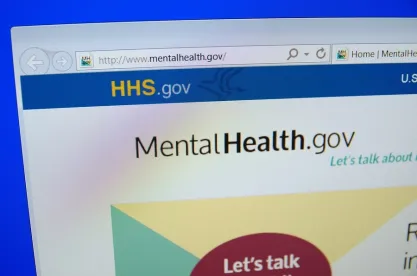In response to a directive from the White House, based on provisions of the Families First Coronavirus Response Act (FFCRA) and the Coronavirus Aid, Relief and Economic Security (CARES) Act that eliminated cost sharing for COVID-19 diagnostic testing, three federal government departments—the US Department of Health and Human Services (HHS), the US Department of Labor (Labor) and the US Department of the Treasury (Treasury)—issued guidance in the form of frequently asked questions (FAQs) that states group health plans and insurers must also cover over-the-counter (OTC) COVID-19 diagnostic testing. This guidance is effective beginning January 15, 2022.
In addition, the Health Resources and Services Administration (HRSA) updated the Affordable Care Act’s (ACA) comprehensive preventive care and screening guidelines for women and children to cover additional services and supplies without a copay or deductible, effective 2023.
COVID-19 AT-HOME TESTING COVERAGE
On January 10, 2022, HHS, Labor and the Treasury together issued FAQs that elaborated on prior guidance and indicated that group health plans and insurers are required to cover OTC COVID-19 diagnostic tests without cost sharing. Because of the recent spike in COVID-19 cases resulting from the rapid spread of the Omicron variant, the guidance will continue for the duration of the public emergency.
Most consumers with private health coverage will be able to buy OTC COVID-19 tests and either have the cost covered upfront or be reimbursed later by submitting a claim to their health plan. The new requirement only applies to “diagnostic” OTC COVID-19 testing. It does not include the treatment of COVID-19 or testing that is for employment purposes.
The guidance provides that health plans and insurers must cover at least eight OTC COVID-19 diagnostic tests per covered individual per a 30-day period. Insurers will be able to set up networks of preferred suppliers to provide OTC COVID-19 tests directly to participants without upfront costs. Insurers must still reimburse OTC COVID-19 tests purchased outside the direct coverage program, however, the reimbursable amount is limited to $12 per test if the health plan also provides tests through its preferred pharmacy network and through a direct-to-consumer shipping program without upfront costs.
Besides the risk of increasing the average cost of OTC COVID-19 tests, the new initiative raises concerns over fraud and abuse. For health plans and insurers to protect themselves, the FAQs provide several examples of permissible activities to prevent fraud and abuse, like requiring proof of purchase or an attestation that the test was purchased for proper purposes (i.e., is being used by the covered individual, is not being reimbursed by another source, is not being resold and is not for employment purposes).
HRSA UPDATES ACA PREVENTIVE HEALTHCARE GUIDELINES
On January 11, 2022, HRSA announced that it updated the preventive health and screening guidelines for women, infants, children and adolescents. Under the ACA, certain group health plans and insurers must provide coverage with no out-of-pocket costs for preventive health services within these HRSA-endorsed comprehensive guidelines.
HRSA accepted the updates recommended by the Women’s Preventative Services Initiative that expand the existing Women’s Preventative Services Guidelines (WPSG) regarding breastfeeding services and supplies (including no out-of-pocket costs for a double electric breast pump), well-woman preventive care visits, contraceptives and contraceptive counseling, screening for human immunodeficiency virus (HIV), counseling for sexually transmitted infections (STIs) and counseling for obesity in midlife women.
HRSA also accepted updates recommended by the American Academy of Pediatrics (AAP) to the existing Bright Futures guidelines, which added the following:
-
Universal screening for suicide risk to the current depression screening category for individuals ages 12 to 21;
-
New guidance for behavioral, social and emotional screenings;
-
New guidelines for assessing risks for cardiac arrest or death for individuals ages 11 to 21; and
-
New guidelines for assessing risk for hepatitis B infection in newborns to 21-year-olds.
NEXT STEPS
In addition to ensuring the updated preventative health guidelines are implemented, plan sponsors should work with their third-party administrator or insurer to develop a process for coverage of OTC COVID-19 tests and to develop procedures to reduce the risk of participant fraud. The new requirements should be incorporated into relevant participant communications, such as open enrollment and communication materials, plan documents, summary plan descriptions and summary of material modifications.





 />i
/>i

